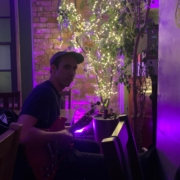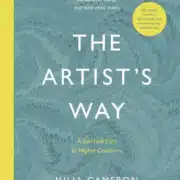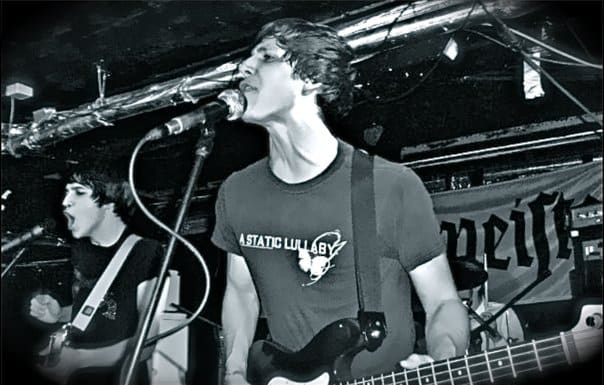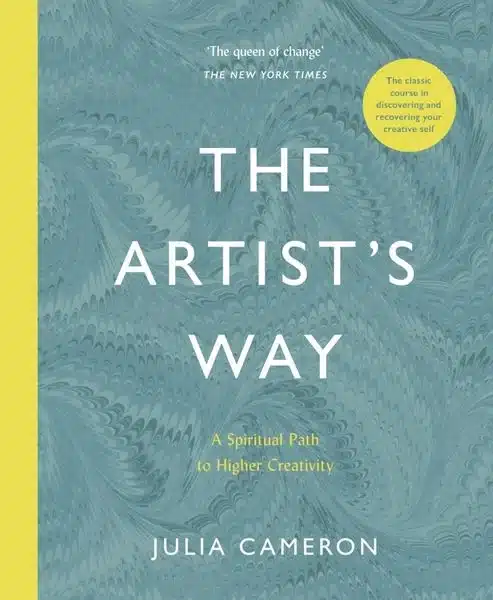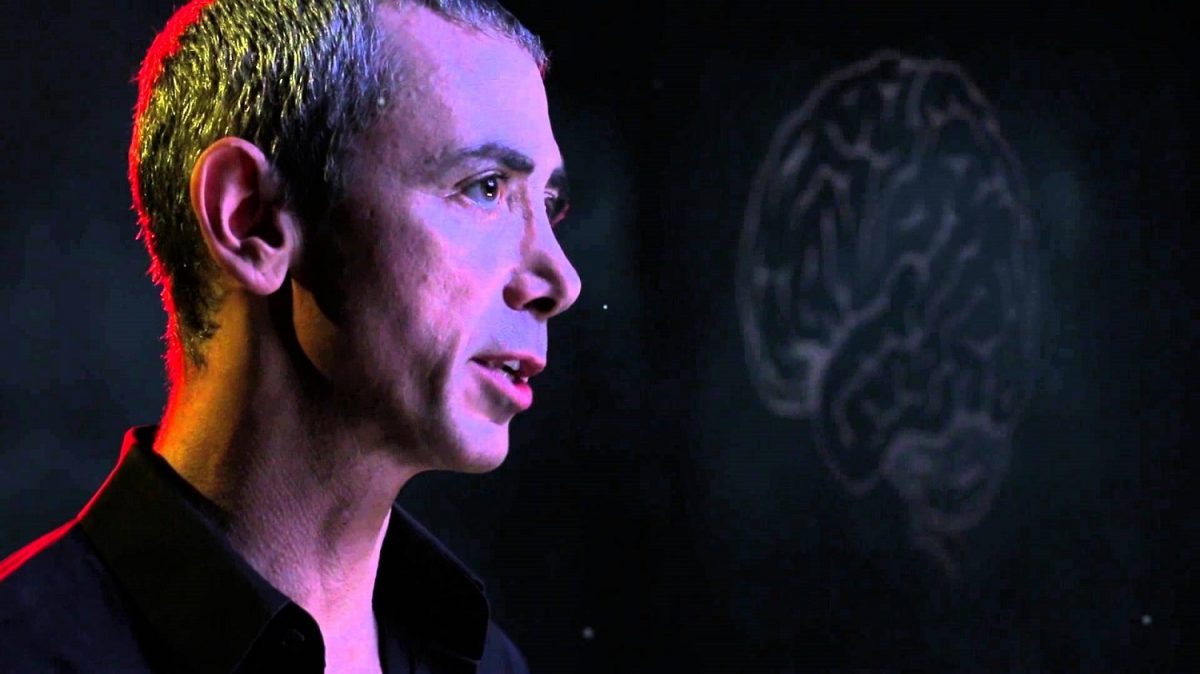Over the last year and a half since completing The Artist’s Way creativity course in April 2023, I’ve become something of a regular at music open mics, attending and playing dozens of times around the world—in my home country in the UK, my old stomping ground Berlin, my Mum’s home metropolis of Hong Kong, and the cultural capital of Vietnam, Hanoi. I’ve been able to play music that I love, music that I’ve written—but maybe most importantly—connect with people and communities around the world who share my love of music.
Playing open mics has even led to paid gig as a solo act—an experience I’d never imagined before starting The Artist’s Way. Two years ago, opportunities like these weren’t even on my horizon.
In the time since I first picked up The Artist’s Way in early 2023, my world has expanded. It’s brought me into creative communities. It’s got me in touch with local scenes that I didn’t know existed—the types of communities I would love to read about but wasn’t really in touch with. It has also deepened what was probably my first love from a young age: music, and put me back into touch with that in a really beautiful way.
Whatever this has been for me over the last two years—process, journey, or something else—it’s not only reconnected me with music in a special way but also deepened my understanding of how creativity, creative endeavors, and communities can truly change lives. They can open up worlds, change our experience of life, and make them more enriching, fulfilling, and connected.
Which brings me to why I’m writing this blog post today—because today we are opening doors to Inspiration Alchemy, an offering that is like a guided community tour through The Artist’s Way.
Inspiration Alchemy builds on the course’s powerful framework, bringing it into a psychedelic-friendly atmosphere with two core collaborators who are deeply involved in the worlds of creativity and psychedelics—two creative badasses: Daniel Shankin of Tam Integration, someone who I’ve admired for a number of years now, for his work and how he shows up. And Jake Kobrin, a visionary artist and educator who I’ve aware of since we both worked on different Truffles Therapy psychedelic retreats in the Netherlands in 2018, and who’s work I’ve become more acquainted with and impressed by recently.
It feels like a special moment to now be making this offering to help others embark on their own creative journeys and see their own worlds expand.
But I digress. Rather than give you all the details about Inspo Alch, I want this to be a personal blog post to give you an understanding of my own journey.
So I’m going back five years, an unassuming but pivotal moment in my story.
A Jam Session That Changed Things
Sometime in 2019, when I was still residing in Berlin, A few of the guys I played Ultimate Frisbee with every Saturday at Treptower Park invited me to bring my guitar to and play a few songs with them at the Noisey rehearsal rooms. I wasn’t expecting much, just a bit of fun.
As we played through a few covers—some guilty pleasures like Blink-182 and other pop rock songs—I realized I hadn’t been in a room with a full band for what must have been about 10 years.
As we started playing, something inside of me just came alive. It felt like something expanding, something opening up, something reawakening.
After we left the rooms to roam down the grimy Warschauer Straße, I realized just how much I’d missed simply playing music in a room with other humans.
Between the ages of 13 and 21, through high school and university, I was pretty much always in one band or another. When I left the UK and started country-hopping for the next 8 or so years, though I played a lot of music, I never settled long enough to find those bandmates.
Through that time, I didn’t realize how much I’d missed it and how much that experience brought to me. Not only the playing itself, but the experience of being in the moment of a dynamic and loud creative act.
That day at Noisey Rooms brought something back to life that had been dormant.
I never actually played again with those frisbee guys. But the deed had been done, I had been reminded of something.
At the time, I still considered myself a creative person. I was writing regularly and had been through some creative processes. I’d gotten into a good writing habit, and I was able to publish and share regularly from a heart centred and intellectual kind of place.
I’d started a blog, which, after some years, developed into Maps of the Mind, where you read this today. It was a hobby slash side hustle which had grown into something which brought professional opportunities. It was through putting my thoughts, feelings, ideas, and experiences into form and sharing them with the outside world: that alchemical process of creativity.
But this was a whole different thing. Music touches something else, something special, something that transcends language. That experience in Berlin got me thinking about how I could bring it back into my life more fully. It planted a seed.
Finding Healing and Growth Through Creativity
When COVID hit, personal and professional challenges pushed thoughts of playing or connecting creatively with others to the back seat. But I did start recording in my bedroom. I made my first bedroom demo in years, a sloppy GG Allin cover. More bedroom recordings followed. In 2022, during another wave of COVID, another Ultimate Frisbee musician friend introduced me to Weekly Beats, a 52-week project where people post a new original recording online every week for a year. I published maybe 30 tracks that year.
By late 2022, I’d left Berlin in search of a new direction and returned to England. It felt like the perfect time to start a new course, so I asked my brother to gift me The Artist’s Way for Christmas.
The Artist’s Way is a 12-week creativity course that combines reflective exercises with two core practices: morning pages and artist dates. Morning pages are three daily pages of stream-of-consciousness writing to clear mental clutter, while artist dates are weekly solo excursions to nurture your creative spark. The program’s structure and exercises encourage participants to reconnect with their creative selves and overcome blocks like self-doubt and fear of judgment.
It felt like a good time to dive into a course, and I asked my brother for a copy of The Artist’s Way for Christmas.
The Artist’s Way was a book I’d heard mentioned a few times by people I followed. One of them was Steve Pavlina, a personal blogger whose creativity course I’d done before which had helped me make strides with my writing, blogging, and developing my first online course, The Conscious Psychedelic Explorer.
I was excited to dive in and I started on January 1st 2023.
Week by week, I began making meaningful strides in this area of my life.
Amongst dozens of exercises which are assigned on a weekly basis, there is one where you make an action plan based on your creative dreams, no matter how silly or unrealistic they may seem. 5-year plan, 1-year plan, 6 months, one month, one week, today. And you have to commit to going through with it.
Inevitably, stuff started happening for me, and in something like week 8 I was putting my name down at an open mic and nervously working my way through a Ty Segall cover and an original from lockdown. I was back the next week, and the week after, and when back in Berlin, played there. Now I just see whats going on everywhere I go.
And so, the world of music communities around the world opened up to me, something that’s been such a big part of my life in the time since. I love being in the environment of being around other musicians, playing and watching, with people who I can have great conversations with about music. I love that I can show up to a place in a t-shirt and people sometimes actually know the band on the t-shirt that I’m wearing. It’s so nice to then be able to have that conversation.
Beyond The Music
It wasn’t only music. The book and its exercises helped me confront doubt, self-criticism, and negative self-talk. The inner child work also gave me insight into where those doubting voices came from—early critics in my life, well-meaning or not, whose words had lingered. I realized how those voices of doubt and judgment had been subtly holding me back. They weren’t conscious; they were just part of my being.
It was like meeting with myself again. It helped me see creativity in a new light.
One of the things I noticed was how closely creativity is linked to healing. It’s no surprise to me that The Artist’s Way is used by therapists or why art therapy exists. Creativity isn’t just about making art or writing poems. It’s about understanding ourselves, expressing what words sometimes can’t, processing emotions, and making meaning of experiences. In some ways, it feels like a core human need—maybe even a purpose, like connection or movement.
That’s one of the reasons why I think The Artist’s Way is such a powerful framework. It provides tools not only to reconnect with creativity but to heal parts of ourselves we might not even realize needed tending.
It’s also given me concrete practices that are now part of my life and supportive on a personal well-being level, which, in turn, helps with creativity.
The Practices and Tools That Have Changed Things
The Morning Pages
One of the core practices is the morning pages: three pages of stream-of-consciousness writing. This has become part of my life.
I don’t do it every day and I don’t always do it in the morning, but I won’t go a week without doing it at least once. It doesn’t go far from me. It’s just too useful.
Writing three pages helps me clear my mental clutter and bring clarity. In many ways, it’s like a psychedelic practice—it helps me connect with what’s important to me, tap into deeper levels of mind, and bring focus and clarity in moments of uncertainty.
Walking
Another simple but big practice that has been integrated more into my life has been walking.
Even something as simple as walking more has been transformative. One week, the course asks you to take a brisk 20-minute walk and observe how it shifts your consciousness. That simple exercise stuck with me. Since then, walking has become a regular part of my routine. In fact, I’m dictating this now while strolling through a park in Hanoi. Walking has been shown to foster well-being and even enhance thinking, as many studies and books highlight.
and that simple exercise stuck with me to the point that I’ve incorporated more walking into my life since. A simple habit that has changed my daily experience of the world in a positive way.
This is one example of these small deliberate acts that can open doors, and give small shifts that add up to larger shifts.
With these small but cumulative insights, the process has overall deepened my understanding of creativity as a force for transformation. It’s connected to well-being, connection, and fulfilment. It’s changed how I approach my days.
The Artist’s Date
Alongside the morning pages, The Artist’s Date is the other core practice; a solo weekly excursion to do something fun that inspires and nurtures our creative consciousness.
This is about allowing ourselves to do fun and enjoyable things for ourselves. No duty or workaholism. They are about having experiences that bring inspiration, awe, and wonder into life. Moments that fuel creativity.
One of my favourite artist dates was going to see Titus Andronicus, a New Jersey rock band on MDMA where I shook a personal hero’s hand. Another was a psychedelic trip where I took time to read through and muse upon The Basic Principles in and expanded and altered state. These experiences are treasures to me. The practice of the Artist’s Date has helped me carve out space for meaningful and exciting moments in my life instead of letting weeks or even months go by without doing anything interesting or creatively inspiring.
Collaboration and the Birth of Inspiration Alchemy
In the year and a half since I finished The Artist’s Way, I’ve reflected on the changes I’ve experienced so far. Rather than hitting some end point, I’ve realised this is just an ongoing process, much like the process of personal growth and healing. It’s not some endpoint I’m heading for; it’s something that just continues expanding and unfolding. Which to me is much more exciting and interesting.
Because I’ve experienced what is possible here, the idea of sharing this process, bringing it to the people in the psychedelic communities and supporting them through it, has kept coming up. When I was going through the course, I shared something about it with a psychedelic Signal Group I’m in, and Daniel from Tam, who had done the course himself some years before, dropped a comment like, “Don’t do it without me.”
As someone whose work I admired for years—that sounded like an invitation that I’d be a fool not to try and answer. I reached out to him about it, and he connected the dots with Jake, an incredibly talented who has not only experienced his own transformation through the course firsthand but is an experienced educator who has been guiding groups through The Artist’s Way for years.
With Daniel’s grounding influence, Jake’s artistic expertise, and the renowned artists on board, I think we’re creating a space where transformation honestly feels inevitable for those who show up.
So I think what we’ve got here is something special that has the potential to be deeply transformative for all who get involved, and in its ripples, the world.
That for me, is the definition of a meaningful project.
As we open registration today, I’m feeling a mix of emotions; excited, optimistic, and hopeful, and grateful to be in a place to invite other people into this journey.
Reconnect with Your Creative Spark Through Inspiration Alchemy
Inspiration Alchemy is your chance to experience the transformative framework of The Artist’s Way in a whole new way. Over 12 weeks, you’ll be guided step by step through the course, enriched by live sessions with guest artists and creators, a vibrant and supportive community, and tools to help you overcome creative blocks and ignite your passion.
This course isn’t just for professional artists or creatives—it’s for anyone looking to bring more inspiration and flexibility into their life. Creativity permeates everything we do, from taking a new route home to cooking up something fresh in the kitchen. If you’re looking to make space for creativity in your life, this course is designed to support you.
The course starts February 10th 2025 and runs for 12 weeks with live sessions every Monday at 8pm EST.
Why Join Now?
Registration opens today, and we’re offering an exclusive Black Friday discount: $400 off through Thanksgiving weekend, plus an extra 10% off with the code MAPS. This is an incredible value for a course packed with inspiration, tools, and community.
Ready to take the leap?
Explore Inspiration Alchemy now

